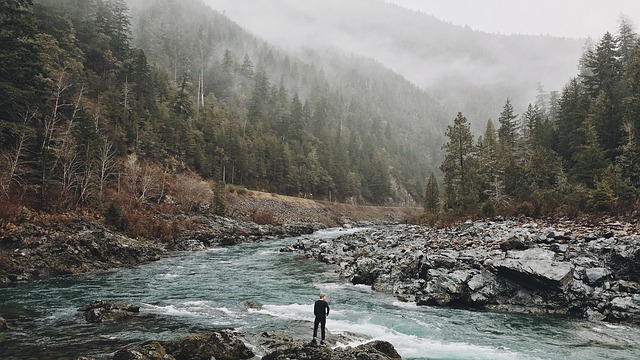This post is one of the free bonus chapters that go together with my eBook “Expat Flow”. You can get the book here.
Are there good sides to pessimism? It probably depends on who you ask! When designing your life abroad, it’s sometimes important to plan and prepare for the worst. Below, you’ll find some guidelines on how this can be done – inspired by some of the most engaged planning people around.
0. Before we begin: stock up on pinches of salt
I am not recommending a full-tilt survivalist perspective here. Your circumstances will vary, and some of the things preppers commit to (like, say, guns) make it super awkward to travel light and blend in with the local culture. So do your homework, pick what suits you, and arm yourself with some healthy criticism towards the rest of it. Now that we’ve sorted this out…
1. What’s the worst that can happen?
You may have seen this question asked a lot. For survivalists, the answers range from a natural disaster to a long term social uproar. For wannabe global nomads, the scope will be different, but still unpleasant: losing jobs, having to find new friends, giving in to culture shock.
The purpose of asking this question is not just to brood over the negatives, though. Once you make a list of possible answers, try to rank them from 1 to 10 based on two criteria: one, how bad would this be? And two, how likely is this to happen? After that, think of ways to solve or prevent these crises – starting with the worst and most likely scenarios.
2. What’s my debt-to-savings ratio?
I’ve seen this one a lot on the survivalist pages I’ve visited, and it struck me as something super wise and transferrable: your debt is the first thing you want to get rid of, when preparing for a life changing situation. The same philosophy applies to planning some time living abroad. Savings will tide you over when the work situation hits an inevitable hiccup. Debt will just weigh you down, and stop you from enjoying life in the new place. (Think the credit card people will stop bothering you when you’ve left town? Think again.)
Start sorting this out way ahead of your move date. Pay off and cancel credit cards. Build up some emergency savings, for sorting out the new life and for dealing with the old-world things which you forgot about. The budgeting and planning skills you learn during this time will really come in handy when you begin to settle down.
3. What is my best asset?
A prepper will know the value of stuff like few other people. They will understand that some things and skills are valuable enough to store and protect – because no matter where you are or who you meet, they will be in need. This is true wealth, better than currency or real estate.
For a future expat, the follow-up to this would probably be: how can I make sure this asset can serve me anywhere? If you’re thinking of money, make plans to be able to use it and make the most of it. If it’s a skill, see what you can do (or where you can go) to ensure it’s just as valuable.
4. What if…?
For most of us, the extent of a survivalist’s plan can be dazzling and mildly amusing. They seem to know exactly what they’ll do in just about any situation! It makes little sense to us, this diligent planning, as we go about our lives in our comfort zones.
This changes the moment you begin to contemplate an adventure or a job abroad. All the things, all the people you leave behind, or those you look forward to – they suddenly turn into potential “what ifs”.
In one of the book’s main chapters, we talked about how a really good checklist can prepare you for some of these situations. If there is anything else you can learn form a prepper, it’s that asking about those scenarios – wondering “what if…?” more than most people – will make you more relaxed, once you start handling the things and outcomes you can control.
What are some other life lessons you could learn from survivalists? Let us know on Facebook or Twitter.
Wiktor (Vic) Kostrzewski (MA, DELTA) is an author, translator, editor and project manage based in London. When he works, he thinks about languages, education, books, EdTech and teachers. When he doesn’t work, he probably trains for his next triathlon or drinks his next coffee.
BRAVE Learning (formerly known as 16 Kinds) is a lifelong learning and productivity blog. If you enjoy these posts, please check out one of my books and courses.
My recent publications, and my archive, is now all available on my new project: PUNK LEARNING. Hope to see you there!


